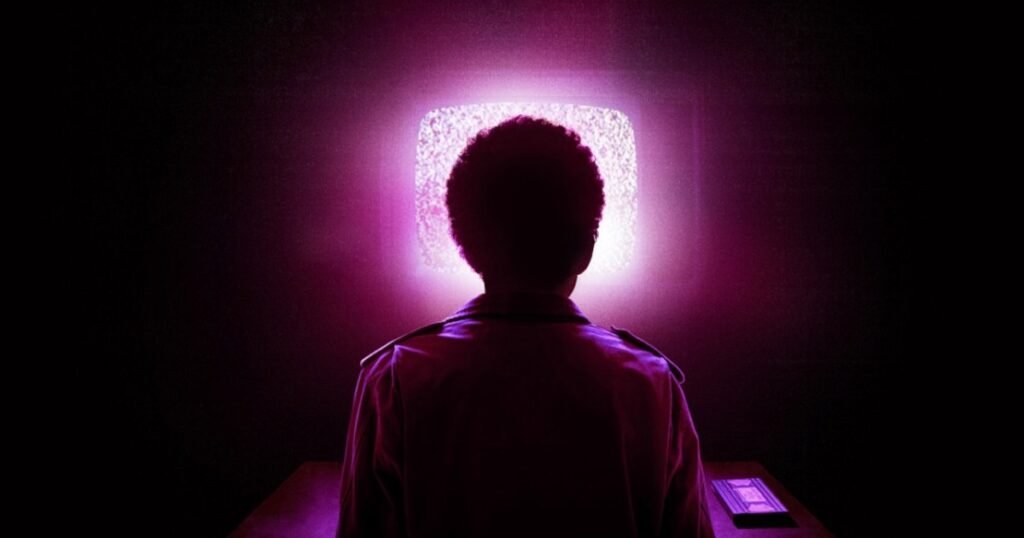An original film can be anything from a new way to tell an old story to something entirely out there and unique. The out-of-there films should be far more represented by the Best Original Screenplay category. We should be celebrating more cinematic swings that take the audience to somewhere that has only ever existed in one person’s mind. This year, there may not be a script any more out there, or deserving, than that of I Saw the TV Glow written by Jane Schoenbrun.
I Saw the TV Glow taps into a particular kind of nostalgia that draws the audience in. It speaks to those of us who remember the importance of being in a certain place at a certain time, glued to the couch. It’s a film for those of us who share an obsessive need to dissect a piece of culture that feels tailor-made for us. It’s about an unfulfilled need, whether it’s the premature end of a beloved TV show or something else entirely.
I Saw the TV Glow has this pervasive conversation about nostalgia throughout, but even more than that, it is wrapped in a layer of truth about the transgender experience. It isn’t a story about someone experiencing the triumph of discovering themselves but the agony of their denial. I Saw the TV Glow‘s themes of toxic nostalgia and fear seep into every layer of its character’s journey to self-discovery and willful ignorance of one’s self.

Jane Schoenbrun’s script is a work of art. She crafts a simultaneously detailed, delicate, beautiful, violent, terrifying, and wondrous world. It resonates with the time it portrays, with the era’s elements subtly woven in. The script aims not to transport us to a bygone era but to help us understand our present. It delves into the layers of Owen’s (Justice Smith) fear, inviting us to reflect on our own.
I Saw the TV Glow is not only remarkable for its world but also for the depth of its characters. Owen is our point of view, our narrator, and ourselves. Owen is a proxy to help us decide if we would have followed Maddy (Brigette Lundy-Paine) and if we would have said yes to a more fully realized life. At the same time, Owen is our fear. We agree with Owen that Maddy is asking too much and that what is out there is not as safe as what is already here. Yet, Maddy is what we want, what Owen wants. She embodies courage, determination, and the understanding of self.
I Saw the TV Glow’s script is a force to be reckoned with, just as is the final product. It stands out as a wholly original piece, offering a unique and refreshing perspective. Jane Schoenbrun’s talent shines through in her ability to express herself in unconventional, eerie, and deeply moving ways. This is the kind of script and film for which the Best Original Screenplay category was designed. It’s a vision that could only exist in its current form—a true cinematic masterpiece.

From now until nomination day, I’d like to keep a running list of films that could break into the Best Original Screenplay category. With only five slots, it will be difficult to narrow down. Yet, narrow it down, I must. I’ll keep it to five and rotate some films out and maybe back in as the mood or the prevailing winds shift. Below, in alphabetical order by title, are the top five, as I see it.
- Babes – Ilana Glazer, Josh Rabinowitz
- Challengers – Justin Kuritzkes
- Civil War – Alex Garland
- I Saw the TV Glow – Jane Schoenbrun
- Love Lies Bleeding – Rose Glass, Weronika Tofilska

